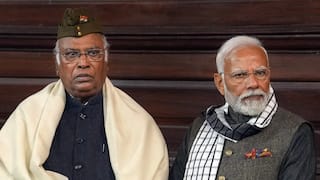Pakistan Becomes Costliest Country To Live In All Of Asia, Inflation At Peak Levels, Says ADB
The outlook for Pakistan’s economy remained bleak in the report, with an inflation rate of 15 per cent estimated for the next fiscal year, representing the highest amongst 46 countries in the region

Pakistan is the most expensive country to live in all of Asia, a recent report by the Asian Development Bank (ADB) revealed. The study revealed that the economic crisis-hit nation is the costliest for people to live in with an inflation rate of 25 per cent.
The global financial body released the report in Manila on Thursday. It also projected a growth rate of 1.9 per cent for the Pakistani economy, marking the fourth lowest pace in the region, reported PTI citing a domestic report.
The outlook for Pakistan’s economy remained bleak in the ADB report with an inflation rate of 15 per cent estimated for the next fiscal year, representing the highest amongst 46 countries in the region, along with a 2.8 per cent growth rate prediction for the 2024-25 fiscal year (FY25), marking the fifth lowest in the region, reported The Express Tribune.
The lending body said that the living cost in Pakistan used to be the highest in South Asia earlier, and with an estimated inflation rate of 25 per cent in FY25, the country will become the costliest to live in all of Asia. The report noted that the State Bank of Pakistan (SDB) will miss the inflation target of 21 per cent, despite the government imposing an interest rate of a staggering 22 per cent.
With an expected growth rate of 1.9 per cent in FY25, Pakistan is estimated to clock the fourth lowest pace after Myanmar, Azerbaijan, and Nauru, the report noted. Pakistan remains in a ‘stagflation phase’ and the World Bank also said that 10 million more people might become the victims of poverty trap due to any adverse shocks, the body added. Currently, about 98 million people in Pakistan are living a poor life.
The report stated that Pakistan would keep facing challenges from major external financial requirements and old debt, aggravated by global monetary conditions. Further, the political instability would pose a risk to reform efforts. “Further IMF support for a medium-term reform agenda would considerably improve market sentiment and catalyse affordable external financing from other sources,” it added.
Also Read : Govt Orders Gas-Based Plants To Ramp Up Operations Amid Soaring Electricity Demand
Trending News
Top Headlines






































